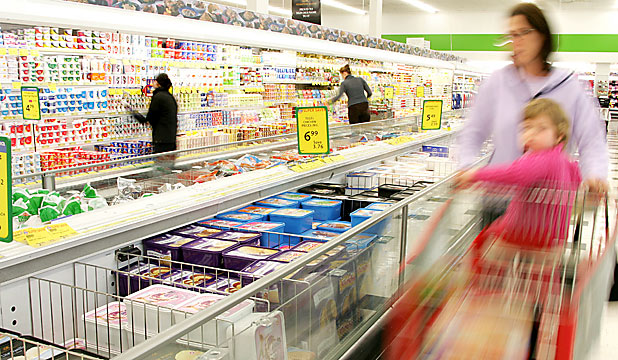Yesterday New Zealand’s top supermarket brands (including New World, Pak n Save, Four Square and Countdown) agreed to a voluntary accord to encourage healthy eating. This is a positive first step, and welcome recognition from these large companies that the food environment plays a crucial role in shaping our health. However, it is just a first step. There is much more change that is needed, including from the retailers themselves.
The Accord
The retailers in question make up the vast majority of New Zealand supermarkets and have agreed to reformulate (reducing sugar, fat and salt) and use the healthy star rating on their home brand products. They have also agreed to ensure their advertising of food to children meets ‘a high ethical standard’.
Supermarkets have led the way on healthy eating overseas too; in the United Kingdom retailers have hastened the take up of labeling of healthy foods, and some have agreed to make checkouts junk food free. They have even asked the Prime Minister to regulate them more. Some retailers such as Marks and Spencer have also undertaken large scale reformulation of their products to make them healthier. In the United States the world’s largest company Walmart also agreed to reformulate its own brand foods and implement healthy food labels. They are even working with a health insurance company to offer discounts on healthy foods.
The Food Environment
These changes both here and overseas are welcome and the retailers should be congratulated for it. There is increasing recognition of the importance of the food environment; that many of the decisions we make are influenced by our surroundings. For those people that don’t know to shop around the edges of the supermarket (the aisles contain the bulk of the highly processed fake food), this will help nudge their purchasing patterns in a healthier direction.
Ultimately these retailers don’t mind what we purchase, as long as we purchase from them. So as long as they think their customers will appreciate their efforts, this kind of voluntary accord makes sense for them.
However there is much more to be done to improve the food environment, including in our supermarkets, and not all of it makes good business sense. For example there is much more to the science of product placement than most people are unaware of. Shelf placement is highly contested, as some shelves are more lucrative than others. Eye height, the ends of rows and the checkout are particularly sought after.
Highly processed fake foods dominate these spots on the shelf because they are cheap to mass produce and manufacturers get larger margins from their sale. These margins are used to advertise and pay for the best spots in the supermarket, which in turn increases our consumption of junk food. For the same reason junk food is more likely to be on sale. How many times have you ignored your shopping list and been tempted by the 2 for 1 chocolate bikkies at the end of the row?
As part of this Accord, Countdown has offered to make one checkout aisle confectionary free. Again, this is a good start, but why not make them all confectionary free? No doubt Countdown will argue they are offering a ‘choice’, but considering one confectionary free aisle a choice shows how far from a balanced food environment we really have.
Changing the food environment is crucial to improving our health, because the vast majority of eating decisions we make each day are subconscious. Far from obesity and diabetes being a matter of individual choice (the implication being that we should blame the individual for making poor choices), food companies deliberately manipulate the environment to get us to eat more of their products. These practices need to be rolled back so that it is easy for consumers to make a healthy choice.

